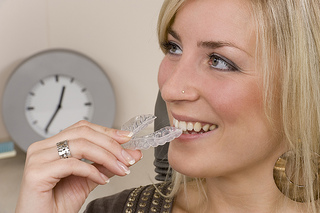Should I use mouthwash?
September 8th, 2014

Mouthwashes are commonly used as a part of a daily oral care regimen. Not only do they freshen breath, but some are capable of improving dental health too. Using a mouthwash daily can rinse fine debris away and out of reach while brushing. It can also make the teeth and gums more resilient to decay and disease.
Types of Mouthwashes
There are several types of mouthwashes available today that Dr. Gregory Weaver and our team at Weaver Dentistry want you to be aware of. Some do little more than freshen breath and are known as cosmetic mouthwashes. These are ideal for quickly eliminating odors that linger after eating, drinking, or taking medication. Using a cosmetic mouthwash does not offer any health benefits.
Other mouthwashes offer more comprehensive benefits; they can potentially prevent tooth decay and gum disease. Mouthwashes that contain antimicrobial agents work by preventing the buildup of plaque that can lead to gingivitis and decay of the tooth enamel. However, it should be noted that the use of a mouthwash is never a substitute for regular brushing and flossing.
In some cases, prescription mouthwashes are necessary to treat patients with gum disease or who have undergone periodontal surgery. These specialty mouthwashes are designed specifically for the treatment of gum disease and should not be used outside of their intended use. The majority of mouthwashes require no prescription.
Tips for Choosing a Mouthwash
The choice to use a mouthwash and which one to use is between you and your dentist, depending on your individual oral health needs. If you determine that a mouthwash is right for you, look for one that contains fluoride, if possible. Fluoride provides an added layer of protection for your teeth, and helps them become more resistant to decay. As always, if you have any questions or concerns when choosing a mouthwash, please give our team at Weaver Dentistry a call for assistance in selecting the rinse that is best for you. Or, we invite to ask us during your next visit to our Raleigh, NC office!



